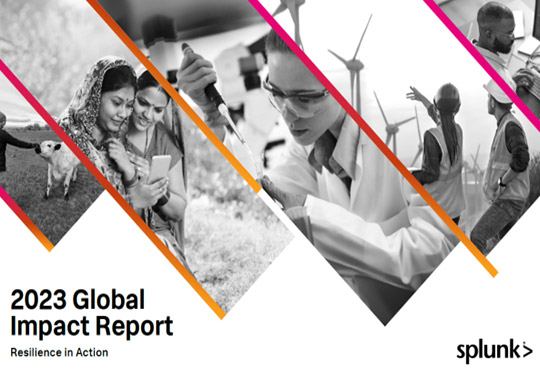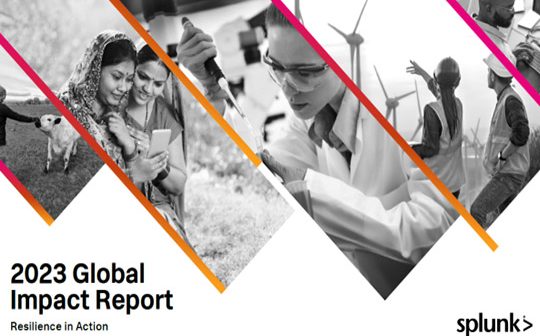
Splunk has released its annual Global Impact Report.
“Our Global Impact work is a foundational element of Splunk’s growth strategy and opportunities, enabling our resilience, performance and innovation,” said Scott Morgan, SVP, Chief Legal Officer, Global Affairs for Splunk. “We are pleased to share our progress and future focus in this year’s Global Impact Report, as we remain steadfast in our commitment to living our values and those of our customers each and every day. Protecting data, strengthening our culture, mitigating climate risk and empowering global communities are intrinsically linked to who we are and the mission-critical digital resilience we provide organisations worldwide.”
The top highlights from the report include:
Data Responsibility
As the explosive growth of generative AI continues, Splunk is engaged in critical dialogue on AI and data ethics through its work with BSA | The Software Alliance, the Future of Privacy Forum and the World Economic Forum. Splunk is also actively addressing the implications of generative AI adoption and usage to ensure its products are developed with the aid of AI tools, incorporating AI, or offering AI assistive features.
Ethical and Inclusive Growth
A new internal career mobility platform was introduced as hundreds of Splunkers received training on inclusive hiring practices. Additionally, the company published its fourth Diversity Annual Report and continues to invest in recruitment programs to improve the representation of women and underrepresented groups.
In FY23, Splunk piloted an expedited payment terms program with qualified small- and diverse-owned businesses. The company aimed to direct 4% of its addressable spend to small and diverse businesses. Its actual performance was 5.7%, exceeding the goal.
Environmental Sustainability
In FY23, Splunk advanced its commitment to achieve net zero emissions by 2050 at a 1.5° C pathway by completing a global climate risk assessment, modelling the resilience of the business relative to projected climate scenarios, assessing net zero transition tactics, and identifying potential near-term climate targets in line with the Science Based Targets initiative.
Social Impact:
In FY23, Splunk donated $4.48M in Splunk licences to help nonprofit organisations, representing a 24% increase in value and a 20% increase in organisations served from the previous year.
Overall, the number of learners taking donated courses increased 55% year-over-year, representing a total value of $3.2M in training services. In addition, total employee volunteer hours increased 126% over fiscal year 2022 as Splunkers helped nonprofits and their local communities solve real-world problems.
You can read the full report here.






